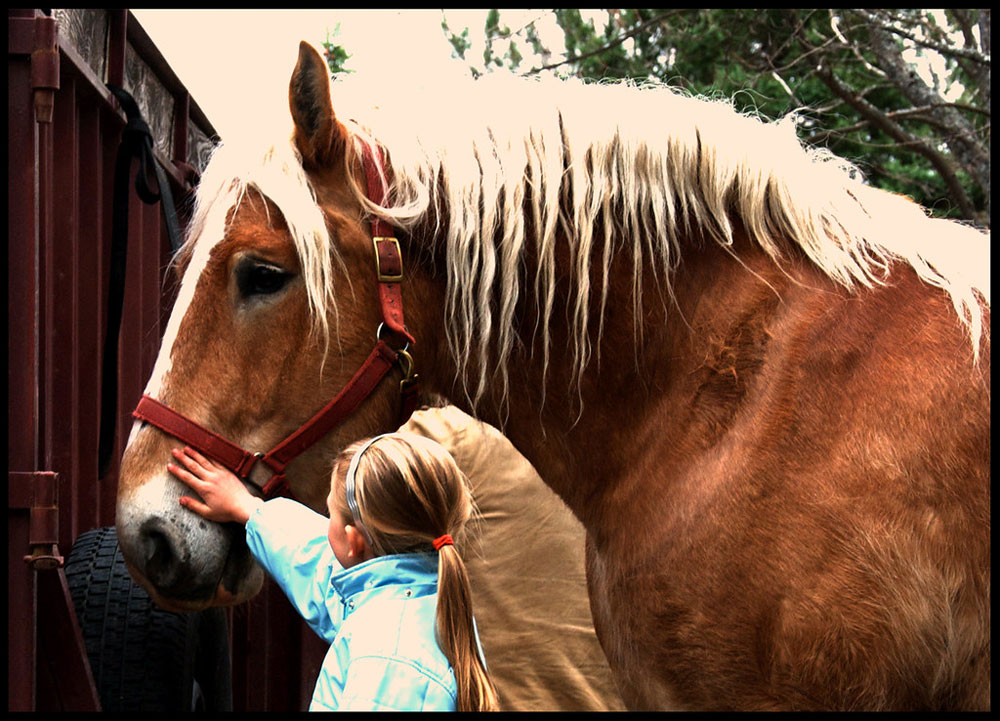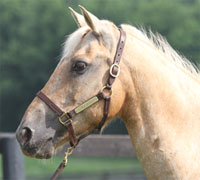 |
From the Unwanted Horse Coalition/American Horse Council:
Over the last month, newspapers such as The Wall Street Journal, The New York Times, The Washington Post and The Los Angeles Times, have reported on an apparent increase in the numbers of unwanted horses.
Regional newspapers and television stations have also reported that state agencies and horse rescue groups are seeing a growing number of horses that can no longer be cared for by owners. Some of the reports suggest that rescue groups are about to be overwhelmed and may have to start turning horses away.
The articles offer numerous factors for a problem that could get worse. They include over-breeding; the downturn in the economy; sharply rising costs of hay; the drought that has affected many parts of the U.S.; the costs of euthanasia and carcass disposal; and the closing of the nation’s three slaughter facilities, which removed the floor on the value of horses.
“Whatever the causes, and they probably include all of these factors, this is not an optimistic forecast for the industry or these horses,” says Tom Lenz, DVM and chairman of the Unwanted Horse Coalition. “Let’s hope it doesn’t get worse.”
The Unwanted Horse Coalition, which operates under the auspices of the American Horse Council, includes more than 20 national organizations. It was created to educate horse owners and potential horse owners about what it means to “own responsibly.”
It may be too soon for the industry to declare this an emergency since the media reports involve only a few states and facilities. But clearly there are enough signs for the industry and horse owners to step up their efforts to educate themselves about potential solutions.
Some individuals and organizations have already stepped up with needed resources. But the costs of potentially caring for thousands of additional horses are substantial.
Rescue efforts are important but individual horse owners have a responsibility to do what they can for their horses.
The Coalition has prepared various materials that will help horse owners consider alternatives for their horses. The materials suggest options an individual can take now and in the future to so that the number of unwanted horses does not increase.
The Unwanted Horse Council brochure, The Problem of the Unwanted Horse, explains the Coalition and its activities. The Coalition handbook, Own Responsibly: Guidance for Current and Potential Horse Owners from the Unwanted Horse Coalition, addresses basic horse care; the responsibilities of horse ownership; options for owners with unwanted horses; programs that extend the useful life of horses, such as retraining, second careers, therapeutic riding programs and retirement facilities; questions to ask when trying to place a horse; euthanasia; and the tax ramifications of contributing your horse to a charitable organization.
“The materials prepared by the Coalition may be helpful in the current situation,” says Katy Carter, Coordinator of the Coalition. These materials are available online at www.unwantedhorsecoalition.org and can be downloaded,” Carter says.
Copies can also be obtained by emailing the coalition through its website or by calling the American Horse Council at (202) 296-4031.
The Coalition also has a growing list of facilities and programs that will accept horses. More than 125 facilities are currently listed by state and the Coalition asks any facility or program that wishes to be listed to log on to the website and complete a brief questionnaire.
Facilities already listed include rescue, retirement and retraining facilities; police and military organizations; therapeutic riding programs; colleges and universities; public stables; and government and park service programs.
“The Coalition hopes that its website will be another important bridge between people who are seeking alternatives for their horses and the many facilities that will accept them,” Carter says. “If you are a facility or entity that will help with the care, training and use of these horses, we hope you will sign on.”
If the industry is facing a growing problem with horses that are not being cared for, there will be no quick and easy fix. Owners and people in the industry at large are going to have to deal with them.
“If the owners who are having trouble taking care of their horses can place them with different, willing owners or users, that will go a long way toward solving the problem,” Lenz says.





LOOK AT THIS PEOPLE:They include over-breeding; the downturn in the economy; sharply rising costs of hay; the drought that has affected many parts of the U.S.; the costs of euthanasia and carcass disposal; and the closing of the nation’s three slaughter facilities, which removed the floor on the value of horses.This is WHY I am pro-Slaughter…Slaughter,most of you think,is NOT NECESSARY,yet it is!! Look what is happening to these horses!By STOPPING SLAUGHTER,we are HURTING MORE HORSES!!Don’t you people get this?This is Stupid,all of you anti-Slaughter People..LOOK WHAT YOU’VE DONE!!
I wish I could take all the unwanted horses. I can’t imagine any horse being unwanted. Where are all the horse crazy people?
*thunks head on desk* And people thought we could just absorb the thousands and thousands of unwanted horses after the slaughter houses closed..un huh sure.
If you can’t care for your horse, PLEASE give it away – I bet there would be plenty of people (like me) willing to take it. Don’t let it die!
Well, I see it this way. Slaughter IS needed, but it is VERY inhumane. It is the fault of people who breed horses that are unneeded and unwanted. Breeding all of the senseless cross breeds and grade horses. Not that some crosses or grade horses are not good horses, but MOST people do not want them which ends with there being nowhere for them to go. Slaughter SHOULDN’T be needed, but it is because of stupidity.
great article. I agree there is to many unwanted horse 🙁
I agree there is WAY to many unwanted horses and pets as well. People are overbreeding and not caring where they go but careing about making money instead 🙁
I want to help the horses but i’m only in the 6th grade and my dad will only let me have one horse aat a time and plus i’m saving up for school chior to go to New York next year. I love horses to death but I don’t think I can help but I can try.
I now how it is my gramother and I rescued two paint fillies and now there doing great. I love rescued horses. All how like horses sound read Hope Rising and Bridge Called Hope. They are great books about rescueing horses.